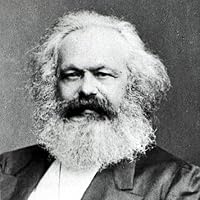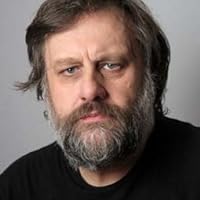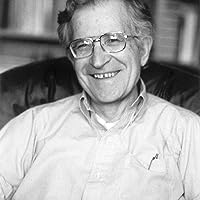Political Science Quotes
Quotes tagged as "political-science"
Showing 1-30 of 583

“I sincerely believe that banking establishments are more dangerous than standing armies, and that the principle of spending money to be paid by posterity, under the name of funding, is but swindling futurity on a large scale.”
―
―

“The ideas of the ruling class are in every epoch the ruling ideas, i.e. the class which is the ruling material force of society, is at the same time its ruling intellectual force. The class which has the means of material production at its disposal, has control at the same time over the means of mental production, so that thereby, generally speaking, the ideas of those who lack the means of mental production are subject to it. The ruling ideas are nothing more than the ideal expression of the dominant material relationships, the dominant material relationships grasped as ideas.”
― The German Ideology / Theses on Feuerbach / Introduction to the Critique of Political Economy
― The German Ideology / Theses on Feuerbach / Introduction to the Critique of Political Economy
“The most dangerous people in the world are not the tiny minority instigating evil acts, but those who do the acts for them. For example, when the British invaded India, many Indians accepted to work for the British to kill off Indians who resisted their occupation. So in other words, many Indians were hired to kill other Indians on behalf of the enemy for a paycheck. Today, we have mercenaries in Africa, corporate armies from the western world, and unemployed men throughout the Middle East killing their own people - and people of other nations - for a paycheck. To act without a conscience, but for a paycheck, makes anyone a dangerous animal. The devil would be powerless if he couldn't entice people to do his work. So as long as money continues to seduce the hungry, the hopeless, the broken, the greedy, and the needy, there will always be war between brothers.”
―
―

“In conclusion, the arms of others either fall from your back, or they weigh you down, or they bind you fast.”
― The Prince
― The Prince

“We find that at present the human race is divided into one wise man, nine knaves, and ninety fools out of every hundred. That is, by an optimistic observer. The nine knaves assemble themselves under the banner of the most knavish among them, and become 'politicians'; the wise man stands out, because he knows himself to be hopelessly outnumbered, and devotes himself to poetry, mathematics, or philosophy; while the ninety fools plod off under the banners of the nine villains, according to fancy, into the labyrinths of chicanery, malice and warfare. It is pleasant to have command, observes Sancho Panza, even over a flock of sheep, and that is why the politicians raise their banners. It is, moreover, the same thing for the sheep whatever the banner. If it is democracy, then the nine knaves will become members of parliament; if fascism, they will become party leaders; if communism, commissars. Nothing will be different, except the name. The fools will be still fools, the knaves still leaders, the results still exploitation. As for the wise man, his lot will be much the same under any ideology. Under democracy he will be encouraged to starve to death in a garret, under fascism he will be put in a concentration camp, under communism he will be liquidated.”
― The Book of Merlyn: The Unpublished Conclusion to The Once & Future King
― The Book of Merlyn: The Unpublished Conclusion to The Once & Future King

“In my opinion, our health care system has failed when a doctor fails to treat an illness that is treatable.”
― The Split Mind: Schizophrenia from an Insider's Point of View
― The Split Mind: Schizophrenia from an Insider's Point of View

“When widely followed public figures feel free to say anything, without any fact-checking, it becomes impossible for a democracy to think intelligently about big issues.”
―
―

“You are what you do. If you do boring, stupid monotonous work, chances are you'll end up boring, stupid and monotonous. Work is a much better explanation for the creeping cretinization all around us than even such significant moronizing mechanisms as television and education.”
― The Abolition of Work and Other Essays
― The Abolition of Work and Other Essays

“If the worker and his boss enjoy the same television program and visit the same resort places, if the typist is as attractively made up as the daughter of her employer, if the Negro owns a Cadillac, if they all read the same newspaper, then this assimilation indicates not the disappearance of classes, but the extent to which the needs and satisfactions that serve the preservation of the Establishment are shared by the underlying population.”
― One-Dimensional Man: Studies in the Ideology of Advanced Industrial Society
― One-Dimensional Man: Studies in the Ideology of Advanced Industrial Society

“[The American President] has to take all sorts of abuse from liars and demagogues.… The people can never understand why the President does not use his supposedly great power to make ’em behave. Well, all the President is, is a glorified public relations man who spends his time flattering, kissing and kicking people to get them to do what they are supposed to do anyway.”
―
―
“Pick a leader who will keep jobs in your country by offering companies incentives to hire only within their borders, not one who allows corporations to outsource jobs for cheaper labor when there is a national employment crisis. Choose a leader who will invest in building bridges, not walls. Books, not weapons. Morality, not corruption. Intellectualism and wisdom, not ignorance. Stability, not fear and terror. Peace, not chaos. Love, not hate. Convergence, not segregation. Tolerance, not discrimination. Fairness, not hypocrisy. Substance, not superficiality. Character, not immaturity. Transparency, not secrecy. Justice, not lawlessness. Environmental improvement and preservation, not destruction. Truth, not lies.”
― Rise Up and Salute the Sun: The Writings of Suzy Kassem
― Rise Up and Salute the Sun: The Writings of Suzy Kassem

“We are all born to love people and use things. Unfortunately, we grow to love things and use people...”
―
―

“The real enemy" is the totality of physical and mental constraints by which capital, or class society, or statism, or the society of the spectacle expropriates everyday life, the time of our lives. The real enemy is not an object apart from life. It is the organization of life by powers detached from it and turned against it. The apparatus, not its personnel, is the real enemy. But it is by and through the apparatchiks and everyone else participating in the system that domination and deception are made manifest. The totality is the organization of all against each and each against all. It includes all the policemen, all the social workers, all the office workers, all the nuns, all the op-ed columnists, all the drug kingpins from Medellin to Upjohn, all the syndicalists and all the situationists.”
― The Abolition of Work and Other Essays
― The Abolition of Work and Other Essays
“Since the earliest days of our youth, we have been conditioned to accept that the direction of the herd, and authority anywhere — is always right.”
― Rise Up and Salute the Sun: The Writings of Suzy Kassem
― Rise Up and Salute the Sun: The Writings of Suzy Kassem

“The science, the art, the jurisprudence, the chief political and social theories, of the modern world have grown out of Greece and Rome—not by favour of, but in the teeth of, the fundamental teachings of early Christianity, to which science, art, and any serious occupation with the things of this world were alike despicable.”
― Agnosticism and Christianity and Other Essays
― Agnosticism and Christianity and Other Essays

“The decline of geography in academia is easy to understand: we live in an age of ever-increasing specialization, and geography is a generalist's discipline. Imagine the poor geographer trying to explain to someone at a campus cocktail party (or even to an unsympathetic adminitrator) exactly what it is he or she studies.
"Geography is Greek for 'writing about the earth.' We study the Earth."
"Right, like geologists."
"Well, yes, but we're interested in the whole world, not just the rocky bits. Geographers also study oceans, lakes, the water cycle..."
"So, it's like oceanography or hydrology."
"And the atmosphere."
"Meteorology, climatology..."
"It's broader than just physical geography. We're also interested in how humans relate to their planet."
"How is that different from ecology or environmental science?"
"Well, it encompasses them. Aspects of them. But we also study the social and economic and cultural and geopolitical sides of--"
"Sociology, economics, cultural studies, poli sci."
"Some geographers specialize in different world regions."
"Ah, right, we have Asian and African and Latin American studies programs here. But I didn't know they were part of the geography department."
"They're not."
(Long pause.)
"So, uh, what is it that do study then?”
―
"Geography is Greek for 'writing about the earth.' We study the Earth."
"Right, like geologists."
"Well, yes, but we're interested in the whole world, not just the rocky bits. Geographers also study oceans, lakes, the water cycle..."
"So, it's like oceanography or hydrology."
"And the atmosphere."
"Meteorology, climatology..."
"It's broader than just physical geography. We're also interested in how humans relate to their planet."
"How is that different from ecology or environmental science?"
"Well, it encompasses them. Aspects of them. But we also study the social and economic and cultural and geopolitical sides of--"
"Sociology, economics, cultural studies, poli sci."
"Some geographers specialize in different world regions."
"Ah, right, we have Asian and African and Latin American studies programs here. But I didn't know they were part of the geography department."
"They're not."
(Long pause.)
"So, uh, what is it that do study then?”
―

“Civilized man longs for the illusion of barbarism. Either his culture fulfills this need by adopting its outer trappings, or he will be seduced by his first contact with a culture that does.”
― In Conquest Born
― In Conquest Born

“This is the paradox of public space: even if everyone knows an unpleasant fact, saying it in public changes everything. One of the first measures taken by the new Bolshevik government in 1918 was to make public the entire corpus of tsarist secret diplomacy, all the secret agreements, the secret clauses of public agreements etc. There too the target was the entire functioning of the state apparatuses of power.
(Žižek, S. "Good Manners in the Age of WikiLeaks." London Review of Books 33.2 (2011): 9-10. )”
―
(Žižek, S. "Good Manners in the Age of WikiLeaks." London Review of Books 33.2 (2011): 9-10. )”
―

“It is your duty,' he said, 'to recover your country not by gold but by the sword. You will be fighting with all you love before your eyes: the temples of the gods, your wives and children, the soil of your native land scarred with the ravages of war, and everything which honor and truth call upon you to defend, or recover, or avenge.”
― The History of Rome, Books 1-5: The Early History of Rome
― The History of Rome, Books 1-5: The Early History of Rome

“Tell me,' asked Stas, 'what is a wicked deed?' 'If anyone takes away Kali's cow,' he answered after a brief reflection, 'that then is a wicked deed.' 'Excellent!' exclaimed Stas, 'and what is a good one?' This time the answer came without any reflection: 'If Kali takes away the cow of somebody else, that is a good deed.' Stas was too young to perceive that similar views of evil and good deeds were enunciated in Europe not only by politicians but by whole nations.”
― In Desert and Wilderness
― In Desert and Wilderness

“This is the paradox of public space: even if everyone knows an unpleasant fact, saying it in public changes everything. One of the first measures taken by the new Bolshevik government in 1918 was to make public the entire corpus of tsarist secret diplomacy, all the secret agreements, the secret clauses of public agreements etc. There too the target was the entire functioning of the state apparatuses of power.”
―
―

“The advertising industry's prime task is to ensure that uninformed consumers make irrational choices, thus undermining market theories that are based on just the opposite.”
― Making the Future: Occupations, Interventions, Empire and Resistance
― Making the Future: Occupations, Interventions, Empire and Resistance
“Both groups [of pundits] were critics, and that is the heart of the problem. If you are a pundit, you seem so smart when you are telling the President what he did wrong… This [is] mostly BS.”
―
―

“Poverty is what you see in the eyes of a Black child living in the squattercamp.”
― The Unbroken Chains of Apartheid : SOUTH AFRICA
― The Unbroken Chains of Apartheid : SOUTH AFRICA
All Quotes
|
My Quotes
|
Add A Quote
Browse By Tag
- Love Quotes 97k
- Life Quotes 75.5k
- Inspirational Quotes 72.5k
- Humor Quotes 43.5k
- Philosophy Quotes 29.5k
- Inspirational Quotes Quotes 27k
- God Quotes 26k
- Truth Quotes 23.5k
- Wisdom Quotes 23.5k
- Romance Quotes 23k
- Poetry Quotes 22k
- Death Quotes 20k
- Happiness Quotes 18.5k
- Life Lessons Quotes 18.5k
- Hope Quotes 18k
- Faith Quotes 18k
- Quotes Quotes 16.5k
- Inspiration Quotes 16.5k
- Spirituality Quotes 15k
- Religion Quotes 15k
- Motivational Quotes 15k
- Writing Quotes 14.5k
- Relationships Quotes 14.5k
- Life Quotes Quotes 14k
- Love Quotes Quotes 13.5k
- Success Quotes 13.5k
- Time Quotes 12.5k
- Motivation Quotes 12k
- Science Quotes 11.5k
- Knowledge Quotes 11k







